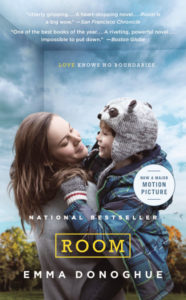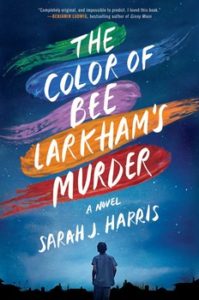We don’t all have children but we were all children once—I think that’s why it can be so unbelievably tricky to nail the voice of a child/teen narrator. After all, we all have a frame of reference, a lasting memory of how we were at a particular age, how we viewed the world, how we viewed adults, and anything too far removed from our own experience stands out a mile. Child narrators don’t need to conform to a certain standard but they have to feel authentic. Often they can seem too ‘cutesy’ or too ‘knowing’—essentially too young or too old for their age.
While the majority of my novel, Sweet Little Lies, is set in the present day and narrated through the eyes of twenty-six-year-old Cat Kinsella, the premise hinges on “a snarling monster of a lie” her father told when Cat was just eight years old. I knew that for the reader to truly understand Cat, and hopefully root for her, they needed to get inside that young, bright, slightly illogical head, rather than hear about her in retrospect from the voice of a now-grown Cat. Writing those passages were among the most enjoyable but also the most challenging—because how do you get into the mind of a child when you’ve got an extra 20/30/40+ years of experience, education, hang-ups, highs, lows, etc. bouncing around your brain?
In my case it was a bit of research and a lot of personal reminiscing. A lot of staring at photos of myself as an eight-year-old child and somehow connecting with that smiling/scowling little girl.
I hope I nailed it. Here’s a list of those who definitely did.

What Was Lost, by Catherine O’Flynn
I adore this novel and recommend it to everyone. In 1984, 10-year-old Kate Meaney—a budding detective with a toy monkey sidekick—goes missing while patrolling her local shopping centre, hoping to spot criminal behavior. In 2003, a lonely security guard and a disillusioned music shop manager at the same shopping centre try to find out what happened to Kate. The first half of the book belongs solely to Kate and her voice is just perfect—she’s bright, tenacious and witty but also heartbreakingly naïve. What Was Lost is as funny as it is sad and there’s such an offbeat tenderness to the writing that you can’t help but ache for the characters and their respective losses.
The Wasp Factory, by Iain Banks
The Wasp Factory was met with widespread gasps of horror after its release in 1984 and it is testament to the sheer power of Banks’ imagination that it still shocks today. The story is told from the first-person perspective of Frank Cauldhame, a 16-year-old living on a remote Scottish island. Frank is a psychopath who dispatches animals and children without so much as a second thought (including three young family members by the age of 10), but it’s not so much the details of Frank’s crimes that alarm so much—although alarm they definitely do—but more the matter-of-fact, almost humorous tone to the narrative. While Frank is someone that the vast majority of readers could not even begin to understand (hopefully!), he is a highly engaging narrator and you’re totally drawn in to his barbaric world.
We Have Always Lived in the Castle, by Shirley Jackson
18-year-old Merricat Blackwood is one of my favorite unreliable narrators. Mary-Katherine (Merricat) and her elder sister, Constance, live with their Uncle Julian on a remote, rambling estate where the rest of the Blackwood family were poisoned several years ago—a crime Constance was charged with before being acquitted. Still believing Constance to be guilty, the local villagers are hostile towards the surviving Blackwoods, although it’s only Merricat who experiences this first-hand when she leaves the estate twice-weekly to buy provisions. With the arrival of an unexpected visitor—a smooth but ultimately self-serving cousin—the Blackwoods’ odd but contented existence is put at risk when a chain of events brings them face-to-face with the rest of the village. While themes of isolation, suspicion and intolerance are common within much of Jackson’s work, We Have Always Lived in the Castle is in a league of its own.
The Butcher Boy, by Patrick McCabe
The tone of The Butcher Boy is set in the opening paragraph when our narrator, Francie Brady, makes immediate reference to ‘what I done on Mrs Nugent.’ Pat McCabe has often said that he didn’t care if The Butcher Boy got published or not and the freedom with which he wrote this novel is beautifully apparent—it’s an astonishing journey into a deluded, deranged teenage mind. Initially, The Butcher Boy isn’t the easiest read (from a pure style perspective), however it doesn’t take long to pick up Francie’s rhythm and soon you aren’t just reading about him, you’re inhabiting him. While McCabe doesn’t once flinch from showing us the full horror of Francie’s crimes, there’s also an underlying compassion there and it’s difficult not to feel a stab of sympathy for this terrifying character when all the devastating events of his life are taken into account.

Room, by Emma Donoghue
There isn’t too much to say about Room that hasn’t already been said, but given the novel is told from the perspective of 5-year-old Jack—one of the youngest narrators to appear in adult fiction (I think!)—it’s definitely worthy of its inclusion here. To Jack, ‘Room’ is his world, the only life he’s ever known. To ‘Ma’, ‘Room’ is the prison where she has been held by Old Nick for the past seven years. When Ma fears that Old Nick’s thoughts may be turning to murder, she plots an escape which ultimately leads her back to her old life and Jack to a new world—a journey they both struggle with enormously. Despite its ‘ripped from the headlines’ premise, there is nothing sensationalist about Room and that’s the real triumph of the book. Jack’s innocent but plain-speaking voice gives the novel its heart and soul.

I’m Not Scared, by Niccolo Ammaniti
During a heatwave, with all the adults laid up indoors, 9 year-old Michele Amitrano and his friends set off on a bike ride across the parched Italian countryside. Before the day ends, Michele will stumble across what he believes to be a dead boy in an abandoned farmhouse (it later turns out that the boy isn’t dead). Initially unable to share this terrible secret with anyone, Michele eventually tells his father who appears disinterested and distracted—it doesn’t take him long to discover the devastating reason why. In many ways, I’m Not Scared is a coming-of-age story, but it’s the brutality with which Michele is forced to confront the harsh truth about nearly every adult he knows, that really hits home in this stunning novel. While it’s told from the perspective of a now-grown Michele, Ammaniti does a wonderful job of applying a child’s morality and logic to the most horrific of situations.
The Cement Garden, by Ian McEwan
To avoid being taken into care, four children bury their recently deceased mother in a trunk of wet cement in the basement of their suburban home and then try to carry on as ‘normal.’ When the eldest sibling, Julie, begins a relationship with a young man called Derek, and a deeply unpleasant smell starts to waft from the basement during the stiflingly hot summer, the scene is set for a horrifying finale. Narrated by 14-year-old Jack in a disturbingly calm, robotic tone, The Cement Garden is quite a short novel by today’s standards; every single word truly earning its place. The premise for Ian McEwan’s first novel is as dark as they come (with abuse and incest thrown in for bleak measure) and it actually earned him the moniker, Ian McArbe!
Blacklands, by Belinda Bauer
Desperate to ease his family’s pain and to prove his self-worth, 12-year-old Steven Lamb spends his time digging holes on Exmoor, in the hope he’ll find the body of his uncle who was murdered by child-killer, Arnold Avery, many years ago. When his digging expeditions prove fruitless, Steven decides to write to Avery and so begins a correspondence that forms the basis of this novel. Despite the grim, upsetting premise, there’s very little gore or violence—the key focus is on the ‘cat-and-mouse’ interactions between Steven and Avery. Blacklands is also a sensitively handled study of the devastating long-term effects of a child’s murder on the family left behind.
The Color of Bee Larkham’s Murder, by Sarah J. Harris
13-year-old Jasper has synesthesia—a condition that causes him to see colors when he hears sounds. He also has face-blindness, which doesn’t help when he’s convinced he knows something about Bee Larkham’s murder and no one will take him seriously. Delightful and original, Jasper completely stole my heart. What I really liked about this novel is that, through Jasper, you’re taken to a world that you have never experienced before, but through the whip-smart dialogue and universal themes of grief and loss, the story never seemed too fantastical—Jasper is just an extraordinary boy trying to make sense of an ordinary, if somewhat scary, world.























